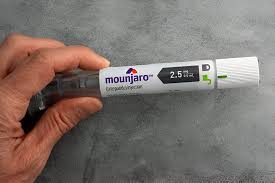Mounjaro, generically known as tirzepatide, is an FDA-approved medication primarily prescribed for the management of type 2 diabetes. It belongs to a new class of drugs called dual GIP and GLP-1 receptor agonists, which mimic the action of naturally occurring hormones to regulate blood sugar. This mechanism not only improves glucose control but also contributes to weight loss in many patients.
In the early stages of its usage, patients and healthcare professionals have observed various secondary benefits of Mounjaro, prompting an increased interest in its impact beyond diabetes. This includes growing curiosity about its influence on cardiovascular health—a significant concern for individuals with diabetes and obesity. Many potential users even begin their research by asking, How Much is the Cost of Mounjaro Injection?, highlighting the demand and perceived value of this treatment.
The Link Between Diabetes and Heart Health
Type 2 diabetes and cardiovascular disease often go hand in hand. High blood sugar levels, insulin resistance, and chronic inflammation contribute to arterial damage, increasing the risk of heart attack, stroke, and other complications. In fact, cardiovascular disease is the leading cause of death in people with type 2 diabetes. Because of this close relationship, effective diabetes medications are often evaluated not only for their ability to control blood sugar but also for their impact on the heart. Mounjaro, by targeting multiple metabolic pathways, has become a promising candidate for improving both diabetic outcomes and heart health.
How Mounjaro Works in the Body
Mounjaro activates both GIP (glucose-dependent insulinotropic polypeptide) and GLP-1 (glucagon-like peptide-1) receptors. These hormones are naturally released in the gut after eating and help stimulate insulin secretion, reduce glucagon levels, slow gastric emptying, and promote satiety. The combined action leads to:
- Better control of blood glucose levels
- Reduced food intake and appetite
- Weight loss in overweight and obese individuals
While these effects are beneficial for managing type 2 diabetes, they also have significant implications for heart health, particularly in reducing risk factors such as obesity, high blood pressure, and lipid imbalance.
What Current Research Suggests About Heart Health
Emerging studies have started to investigate the cardiovascular outcomes of tirzepatide (Mounjaro). While full-scale outcome trials are ongoing, early data is encouraging. Researchers are particularly interested in how Mounjaro impacts:
- Blood pressure levels
- Inflammatory markers
- Lipid profiles
- Arterial stiffness and endothelial function
Initial results from clinical trials and observational studies have shown that patients using Mounjaro experience reductions in systolic and diastolic blood pressure, improvements in cholesterol levels, and significant weight loss—all of which contribute to better heart health.
Weight Loss and Cardiovascular Benefits
One of the standout benefits of Mounjaro is its impact on body weight. Weight loss alone can significantly reduce the risk of cardiovascular events. Even a modest reduction in weight has been shown to lower blood pressure, improve lipid profiles, and decrease insulin resistance. In patients with obesity, Mounjaro has demonstrated superior weight-reduction results compared to other medications in its class. This makes it an especially attractive option for individuals looking to improve their overall health, including heart function.
Impact on Blood Pressure and Lipids
Hypertension and abnormal cholesterol levels are two of the most common comorbidities among individuals with type 2 diabetes. Mounjaro helps indirectly lower blood pressure and LDL cholesterol, while potentially increasing HDL cholesterol, also known as “good cholesterol.”
These effects may be attributed to:
- Weight loss reducing strain on the cardiovascular system
- Hormonal changes that influence vascular tone and lipid metabolism
- Better glucose regulation lowering arterial inflammation
These combined improvements can help reduce the risk of developing serious conditions like heart attacks or strokes.
Inflammation and Endothelial Function
Chronic inflammation is another underlying factor in heart disease. GLP-1 agonists, including the GLP-1 component of Mounjaro, have been shown to reduce systemic inflammation by lowering levels of C-reactive protein (CRP) and other pro-inflammatory markers.
Who Might Benefit the Most?
Patients with type 2 diabetes, obesity, or metabolic syndrome are among the primary candidates who might benefit from Mounjaro's cardiovascular effects. Additionally, individuals with a family history of heart disease or multiple risk factors may find that Mounjaro provides an added layer of protection. Still, it's important that healthcare providers evaluate each patient’s comprehensive medical profile before starting treatment. As with any medication, individual response may vary, and monitoring is essential.
Final Thoughts
In conclusion, Mounjaro offers tremendous promise not only in managing type 2 diabetes but also in improving key markers associated with heart health. Through its dual-action mechanism, it targets blood glucose, body weight, blood pressure, and cholesterol levels—each a major contributor to cardiovascular disease.





Comments